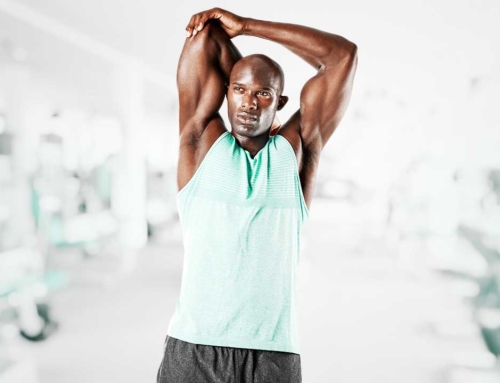Sleep!
That’s right. Most people tend to forget how important sleep is when it comes to the success rate of losing fat. In our world today we are on the go, hustling, grinding, going from one appointment to the next, dropping kids off, picking them up, cooking dinner, driving to pick up dinner, answering emails, waking up earlier, going to sleep later, and sleep takes the back seat in all of this.
This everyday occurrence is why so many of us have trouble getting to bed and falling asleep every day. We end up using medication to knock us out and getting artificial rest when all we need is to change some of our lifestyle choices to rest our bodies and minds efficiently.
Currently, 40% of people are not getting the minimum required sleep of 7 hours. That number is rising and is only a matter of time when the majority of North America will have a sleep deprivation issue.
Sleep isn’t just rest; sleep keeps your appetite calibrated.
Now, let’s make the effort of getting 7 hours a night your goal. If you need to set a bedtime, just like children, then do it. Re-prioritizing your evening tasks to include less binge-watching House of Cards and more pillow time can go a long way to getting the sleep you need.
What should you do if you can’t fall asleep?
Here are a few things you can do courtesy of the National Sleep Foundation:
Treat your bedroom as a sanctuary from the stresses of the day. Create a comfortable sleeping environment, with a quality mattress and pillows that is free of distractions. Yes, please turn off the TV in your bedroom if you have one.
Be sure your bedroom is dark when you go to bed and will stay dark until you get the sleep you need. You can use light-blocking curtains or shades.
Make sure your bedroom is at a cool temperature. Temperature is crucial for quality sleep; you don’t want to be tossing and turning all night because you were too hot to fall asleep.
Establish a relaxing bedtime routine. Read for 20 minutes, reflect on the day, lay down and just relax for a moment without your phone and checking Facebook.
If you find yourself lying awake for longer than 20 minutes, get up and do something. Go to the kitchen, clean up, maybe meal prep for the next day. You might as well if you’re not falling asleep! Then get back into to bed and repeat the steps above.
Avoid bright lights from your phone, iPad, computer, etc.
Avoid coffee, large meals, and alcohol before bed.
No late afternoon naps past 3 pm.
So why is sleep so important?
There are so many studies to support that not getting enough sleep is directly related to obesity and many other health problems. These same studies reveal further that having less than 7 hours of sleep is associated with current and future development of obesity.
Not getting enough sleep dials up a person appetite by increasing amounts of hunger-stimulating hormones and decrease hunger suppressing hormones. What does this mean? Less sleep = you want to eat more than you should, more sleep = your body will tell you when it’s full and ready to go on.
By focusing on your sleeping habits compared to stressing over everything else related to fitness and health, you’ll see a substantial difference in performance, stress control, and of course fat loss.









Leave A Comment